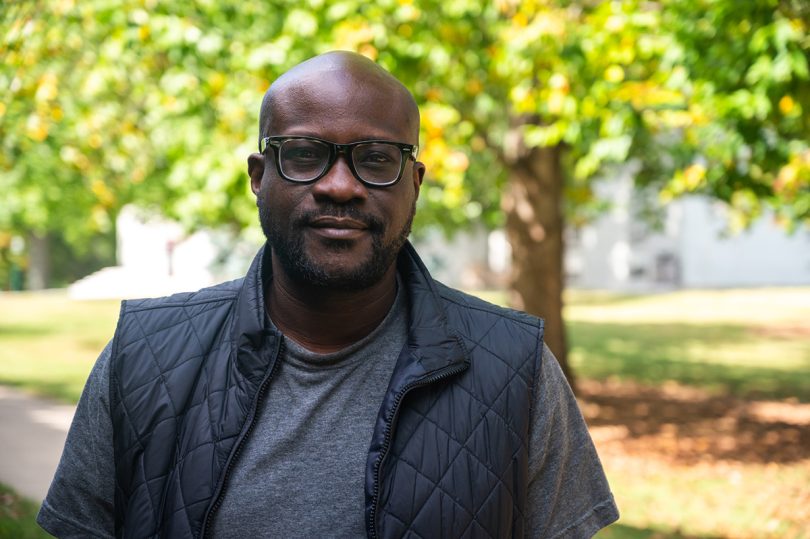
We know all too well from the last few years what can happen when the boundary breaks between us and the diseases that plague other organisms.
The COVID pandemic has sparked a sense of urgency — and interest — in learning about infectious diseases that pass between humans and animals, and Transylvania University now has an additional resource to help meet that demand.
Folusho Falade, who recently began as the school’s newest biology professor, brings with him not only a wealth of experience in researching these types of diseases in the field and the lab, but also a passion for teaching others about them.
Originally from Nigeria, Falade’s interest in biology was first nurtured by his veterinarian father — and then as a student at the University of Ibadan, where he became fascinated with single cell organisms, particularly the parasite that causes mosquito-borne malaria.
After earning a Ph.D. in molecular parasitology, Falade taught at his alma mater for a few years and worked on postdoc malaria studies across the globe, from Germany to Thailand. “My research was involved in understanding the biology of the parasite,” he said. (The disease kills hundreds of thousands of people each year, many of them children in Africa.)
Falade eventually moved to the United States when an opportunity came up to study malaria drugs at the University of Kentucky College of Pharmacy. He also taught at Georgetown College and Campbellsville University before coming to Transylvania. “I’m excited to be at Transy,” he said. “I love it here in Lexington.” And since he and his family have become a part of the community, he’s glad for the opportunity to continue teaching locally.
“I’ve always loved teaching,” Falade said. He especially enjoys engaging in one-on-one conversations with students and sharing his experiences, including stories about his globetrotting research expeditions.
This May term, the professor is teaching a course called Zoonotic Diseases (ones that originate from other animals). He also plans to bring his research on malaria to Transylvania, which he feels will help get students interested in studying infectious diseases in general.
Falade also envisions taking advantage of his relationships with international colleagues for possible travel courses that will give students an opportunity to conduct research abroad.
The nature of how we approach combating infectious diseases actually ties into the university’s interdisciplinary liberal arts mission because it involves so many different fields besides biology — from public policy to botany. Plus, for Falade, studying and teaching about them is “a bridge between understanding, passing on the knowledge and saving people’s lives.”

